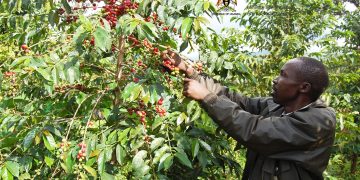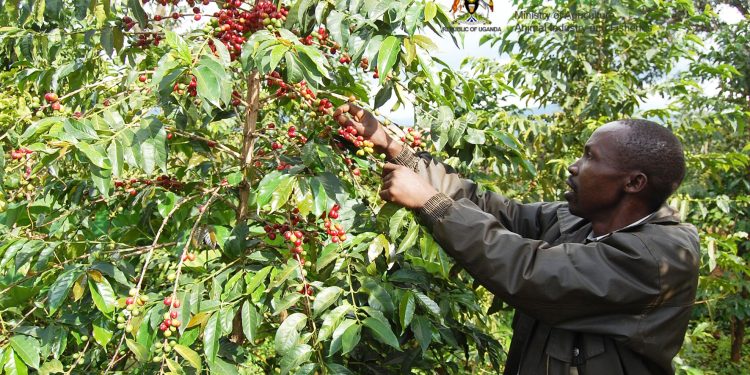Authorities have warned farmers to desist from selling immature coffee saying the move affects the quality of coffee in the country.
Liza Luseesa, the Uganda Coffee Development Authority – UCDA manager for Central region said that although farmers are aware that it is only ripe coffee to be harvested, many are lured to sell coffee in their plantations thereby compromising the quality of coffee since the buyers are not present in the farms.
“And because the buyer has no ownership of the plantation, they care less about the coffee to be harvested as well than the farmers and they end up harvesting coffee that is immature,” she said.
Luseesa explained that upon buying immature coffee berries, the buyers then compact the coffee in small stores and the coffee ends up rotting thereby becoming hazardous to consumers because it causes cancer among humans.
“As UCDA, we have sensitized the farmers and informed them that the institution was established to promote the quality of coffee and we monitor the quality of coffee and the main goal is to eradicate poverty,” she said. “We appeal to all the coffee farmers to put in place alternative income generating programmes and practice mixed farming to generate income rather than looking at coffee alone as the sole source of income,” she said.
Luseesa asked the farmers and all those engaged in coffee production to register and form cooperatives to help them acquire soft loans so that they can pay when they sell mature coffee and be able to pay back.
“By joining the cooperatives, it helps us to maintain and promote the quality of coffee,” Luseesa told a training workshop in Mityana District. “If you are operating under a cooperative, selling your coffee together, when you see a member bringing coffee that does not meet the required quality, you will not want to buy from them to mix with yours. This is another control and it stops a farmer from harvesting immature coffee.”
Uganda Coffee Development Authority – UCDA organized the training to create awareness among the stakeholders along the coffee production chain about the newly enacted National Coffee Act and how to implement the law to improve the production and quality of coffee.
Among the stakeholders were the farmers, the buyers, hullers, farmer inspectors and those involved in value addition at the various levels, all who were sensitized on the implementation of the new laws to promote coffee growing and production in the country.
Government is targeting to produce 20 million bags of coffee with each weighing 60kgs by the year 2025.
Daniel Sseremba , the Farmers’ Coordinator in Mityana District said the government target can only be achieved by producing quality coffee through targeting all those in the coffee production chain.
“Farmer inspectors have to implement this law by monitoring at all levels right from the nursery operator to ensure quality while farmers grow the acceptable high yielding type of coffee,” he said.
According to Sseremba, the farmers are advised to grow drought resistant but high yielding coffee types provided by researchers and that everyone involved in the coffee production chain has to register and their roles to enable authorities monitor their activities.
Mityana District Speaker Catherine Nalweyiso commended UCDA for the training but appealed to authorities to target local communities with a view of explaining and interpreting the law to the farmers who are directly a target.
Coffee exports for 12 months (September 2020 to August 2021) totaled 6.41 million bags worth 607 million dollars compared to 5.22 million bags worth 502.24 million dollars in the previous year. URN









